Treatments for Advanced Heart Failure
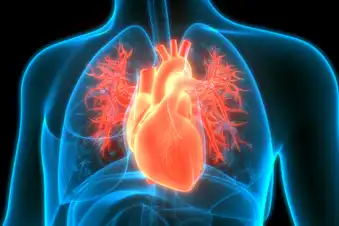
Know Your Treatment Options
With heart failure, your heart has a hard time pumping blood to the rest of the body. This causes fluid to build up, leading to symptoms like swelling and trouble breathing. Once you get symptoms, heart failure is considered advanced, or stage C. Stage D is the most advanced stage. You may need heart surgery or special equipment to do what your heart can’t.
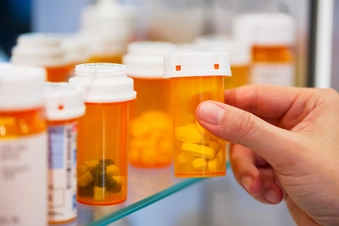
Renin-Angiotensin System Inhibitors (RASi)
Treatment for stage C chronic heart failure starts with medications to slow its progress and ease symptoms, such as:
- An angiotensin converting-enzyme (ACE) inhibitor like enalapril or lisinopril
- An angiotensin receptor blocker (ARB) like candesartan, losartan, or valsartan
- A drug that combines valsartan with the neprilysin inhibitor sacubitril
RASi drugs act on the hormone system that helps regulate your blood pressure.
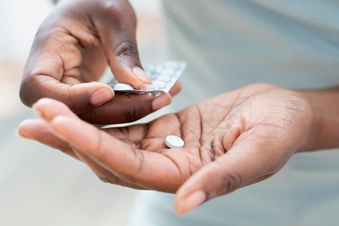
Beta-Blockers
Often prescribed early on for high blood pressure or after a heart attack, a beta-blocker is essential for stage C chronic heart failure. Beta-blockers slow your heart rate to ease its workload and help it pump blood. They also reduce your risk of a heart attack, keep heart rhythm normal, and stop stress hormones from making heart failure worse. Beta-blockers include bisoprolol, carvedilol, and metoprolol succinate.
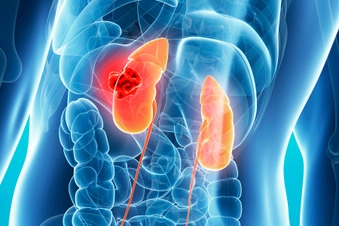
Aldosterone Blockers
Also called mineralocorticoid receptor antagonists (MRAs), they block the effects of the hormone aldosterone. Aldosterone interferes with your kidneys' release of salt and water. This can raise blood pressure and make it harder for your heart to pump. Aldosterone blockers also keep you from losing potassium, a mineral important for heart function. These drugs include eplerenone and spironolactone.
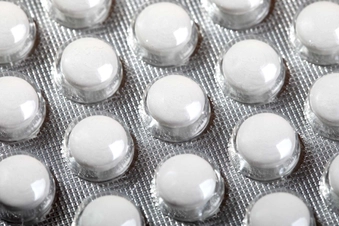
Soluble Guanylate Cyclase (sGC) Stimulator
Vericiguat (Verquvo) is a type of medication called a soluble guanylate cyclase (sGC) stimulator. It works by relaxing blood vessels in your lungs to improve blood flow. You might get it if you have reduced ejection fraction, which means the muscle in your heart's main chamber doesn’t pump as it should. Your doctor could prescribe it if you were recently hospitalized or got IV medication for heart failure.
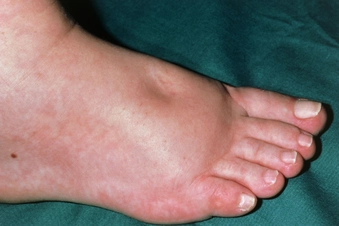
Diuretics
When fluids build up in your body, your heart works harder. Diuretics help you get rid of those fluids and can stop chronic heart failure from getting worse. You breathe more easily and have less swelling in your feet, legs, and belly. Diuretics include bumetanide, furosemide, and torsemide.

Hydralazine and Isosorbide Dinitrate
Doctors sometimes prescribe a combination of the drugs hydralazine and isosorbide dinitrate (BiDil) specifically for Black people with chronic heart failure (and also for people with kidney problems). It eases symptoms that last even when you’re taking other heart failure drugs. It works better to widen and relax blood vessels and helps your heart pump more blood. It's not clear why this drug works better for Black people.
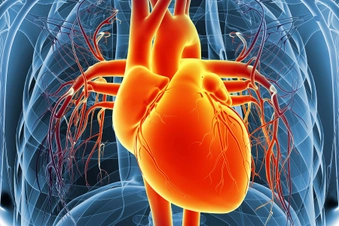
Diabetes Drugs Can Help
The FDA has approved the diabetes medications dapagliflozin (Farxiga) and empagliflozin (Jardiance) as add-on drugs for people with chronic heart failure – even if they don’t have diabetes. Either can help lower your risk for hospitalization and death. Dapagliflozin is for people with reduced ejection fraction, which means the muscle in your heart's main chamber doesn't pump as it should.
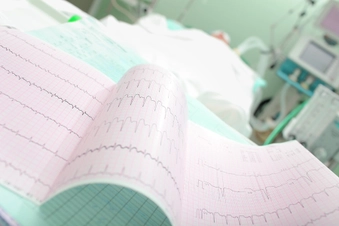
Drugs That Slow Your Heart Rate
If you have a fast heart rate (but a normal rhythm), your doctor might add ivabradine to your treatment plan. One large study showed that in people with heart failure, a lower heart rate could reduce hospitalizations for heart failure and death from heart disease. If you have also atrial fibrillation, or if other heart failure drugs haven't worked, you might take digoxin. This older drug may not reduce death rates, though.

Lifestyle Changes
Take your medications every day. And keep up with lifestyle changes to slow down chronic heart failure:
- Don't smoke.
- Limit caffeine and alcohol.
- Follow a heart-healthy diet like the DASH diet.
- Limit fluids if your doctor tells you to.
- Weigh yourself daily, and call your doctor if you gain or lose more than 3 pounds.
- Keep track of your blood pressure.
- If heart failure keeps you from exercising, consider a cardiac rehab program.

When Heart Failure Worsens
There are many treatments that may help when chronic heart failure becomes stage D. Some could benefit stage C, too. An implanted remote monitor tracks your condition 24/7. A sensor, placed in a lung artery, alerts your doctor to any fluid buildup in your lungs so they can take quick action. According to some studies, this type of monitor helps slow down the progression of chronic heart failure and boost quality of life.
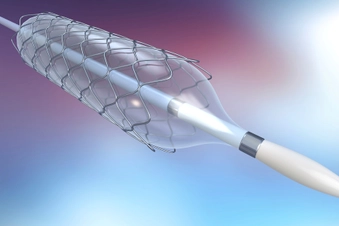
Nonsurgical Heart Procedures
In these "percutaneous interventions," surgeons correct problems related to heart failure through a small cut in your groin. Angioplasty, which uses a balloon to open a blocked heart artery, is the best-known. Some valve repairs can also be done this way. In some cases, you may need traditional heart surgery, like a bypass or removal of a damaged pericardium (the sac around your heart).
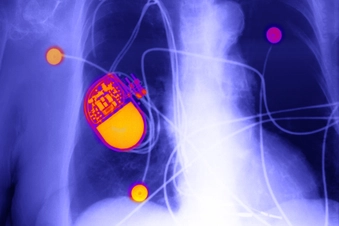
A Pacemaker for Advanced Heart Failure
Advanced heart failure can delay contractions of the right and left ventricles. These are the heart’s main pumping chambers. A pacemaker made just for heart failure, called cardiac resynchronization therapy, or CRT, can help the ventricles work properly and slow the progression of chronic heart failure. With CRT, you may have an easier time going about your daily activities with less time in the hospital.
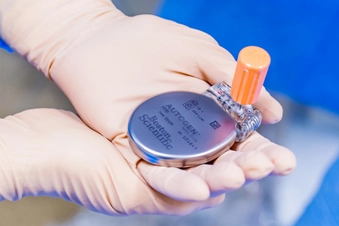
Implantable Cardioverter Defibrillator (ICD)
An ICD doesn’t directly improve heart function or the symptoms of advanced heart failure. But it helps prevent sudden death when you have problems like an irregular heart rate or rhythm. It monitors your heart and delivers a strong electrical shock when needed to reset your heart. Some ICDs are also pacemakers, helping to control your heart rate.
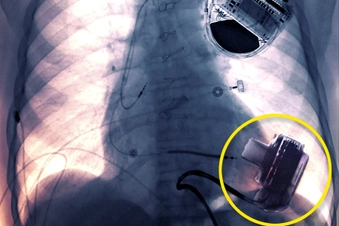
Implantable LVAD
An implanted left ventricular assist device (LVAD) is a mechanical heart pump. It does the heart’s job of sending blood from the left ventricle to your aorta and out to your body. An LVAD can be permanent or used temporarily while you wait for a heart transplant. A surgeon places it in your upper abdomen. You must wear a battery and control system outside your body.

Heart Transplant
If you’re eligible and can wait for a donor, a transplant can add years to your life when you have stage D heart failure. But it’s a complicated surgery that involves a lot of follow-up care. Some temporary treatments act as a bridge until a heart becomes available, like a continuous IV infusion of drugs called inotropes.
Show Sources
IMAGES PROVIDED BY:
- iStock / Getty Images
- Tetra Images / Getty Images
- SCIENCE PHOTO LIBRARY / Getty Images
- SEBASTIAN KAULITZKI / Getty Images
- Yulia Reznikov / Getty Images
- Dr P. Marazzi / Science Source
- DigitalVision / Getty Images
- Science Photo Library – PIXOLOGICSTUDIO / Getty Images
- sudok1 / Getty Images
- alejandrophotography / Getty Images
- SDI Productions / Getty Images
- CHRISTOPH BURGSTEDT/SCIENCE PHOTO LIBRARY / Getty Images
- Ted Kinsman / Science Source
- BURGER / PHANIE / Science Source
- ZEPHYR / Science Source
- Pramote Polyamate / Getty images
SOURCES:
National Library of Medicine: “Heart failure – fluids and diuretics.”
American Heart Association: “Advanced Heart Failure,” “What Medicine Might I Take,” “Recognizing Advanced Heart Failure and Knowing Your Options, “Planning for Advanced Heart Failure,” "Lifestyle Changes for Heart Failure."
Temple Health: “Advanced Heart Failure Treatment Options,” “CardioMEMS Heart Failure (HF) System.”
Circulation: “2022 AHA/ACC/HFSA Guideline for the Management of Heart Failure: A Report of the American College of Cardiology/American Heart Association Joint Committee on Clinical Practice Guidelines.”
Cleveland Clinic: “Heart Failure (Congestive Heart Failure),” “Heart Failure Medications,” “Aldosterone Antagonists,” “ Implantable Cardioverter Defibrillator (ICD).”
Heart Failure Association of America: “Novartis Entresto granted expanded indication in chronic heart failure by FDA.”
UChicago Medicine: “Medical Care for Heart Failure,” “Heart disease and racial disparities: Why heart disease is more common in Black patients and how to prevent it.”
FDA: “FDA Approves Treatment for Wider Range of Patients with Heart Failure,” "FDA approves new treatment for a type of heart failure," “CardioMEMS HF System – P100045/S056.”
Columbia Heart Surgery: “Pacemakers and Defibrillators.”
UpToDate: “Cardiac resynchronization therapy in heart failure: Indications.”
Mended Hearts: “New program helps people with heart failure take more active roles in their care.”
American College of Cardiology: “Latest Evidence on Racial Inequities and Biases in Advanced Heart Failure.”
Association of Black Cardiologists: “Other Resources.”
MedlinePlus: "Vericiguat."
Mayo Clinic: "Vericiguat (Oral Route)."